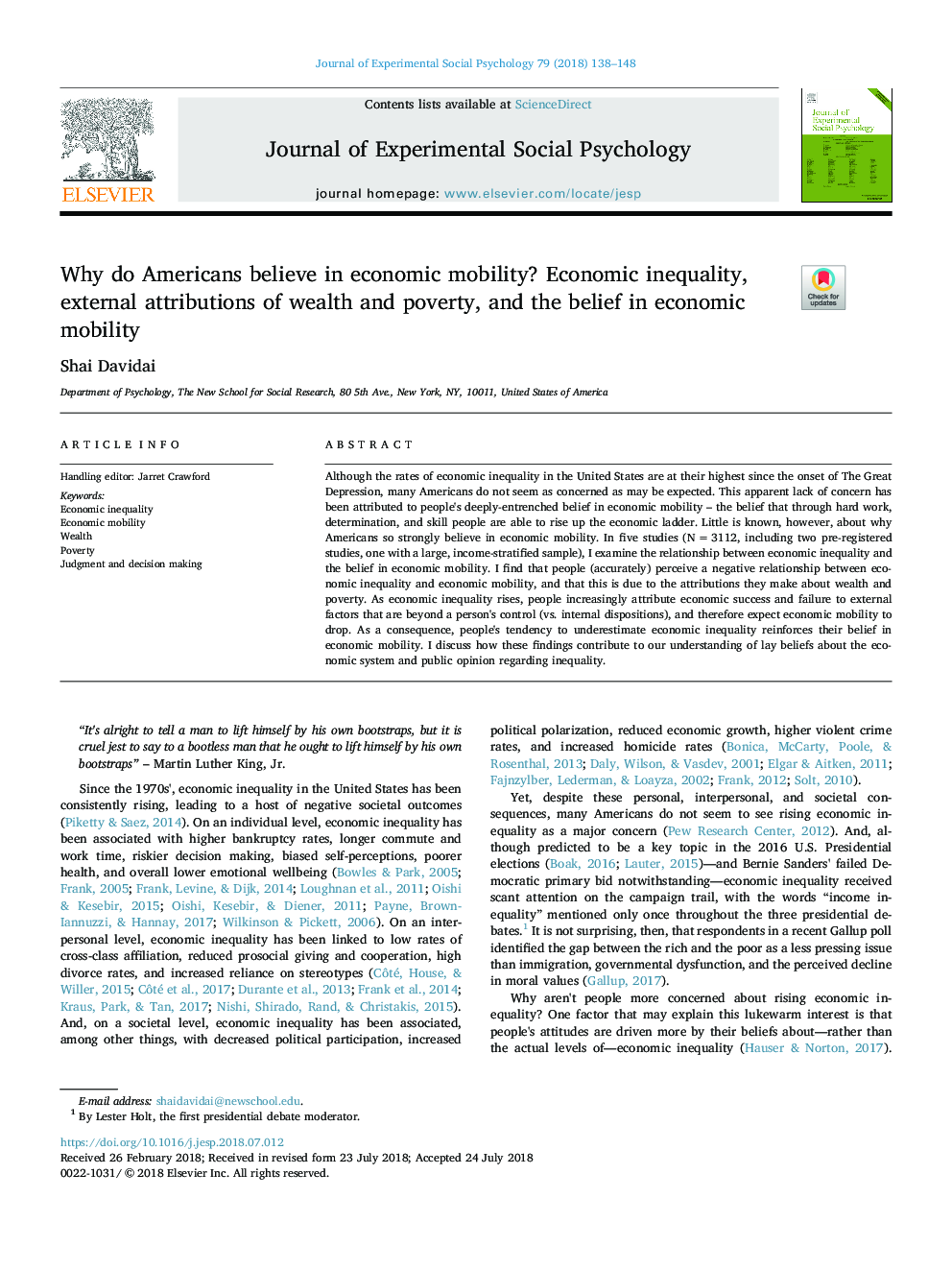| کد مقاله | کد نشریه | سال انتشار | مقاله انگلیسی | نسخه تمام متن |
|---|---|---|---|---|
| 7323937 | 1475844 | 2018 | 11 صفحه PDF | دانلود رایگان |
عنوان انگلیسی مقاله ISI
Why do Americans believe in economic mobility? Economic inequality, external attributions of wealth and poverty, and the belief in economic mobility
ترجمه فارسی عنوان
چرا آمریکایی ها به تحرک اقتصادی اعتقاد دارند؟ نابرابری اقتصادی، ضوابط خارجی ثروت و فقر و اعتقاد به تحرک اقتصادی
دانلود مقاله + سفارش ترجمه
دانلود مقاله ISI انگلیسی
رایگان برای ایرانیان
کلمات کلیدی
نابرابری اقتصادی، تحرک اقتصادی، ثروت، فقر، قضاوت و تصمیم گیری،
موضوعات مرتبط
علوم زیستی و بیوفناوری
علم عصب شناسی
علوم اعصاب رفتاری
چکیده انگلیسی
Although the rates of economic inequality in the United States are at their highest since the onset of The Great Depression, many Americans do not seem as concerned as may be expected. This apparent lack of concern has been attributed to people's deeply-entrenched belief in economic mobility - the belief that through hard work, determination, and skill people are able to rise up the economic ladder. Little is known, however, about why Americans so strongly believe in economic mobility. In five studies (Nâ¯=â¯3112, including two pre-registered studies, one with a large, income-stratified sample), I examine the relationship between economic inequality and the belief in economic mobility. I find that people (accurately) perceive a negative relationship between economic inequality and economic mobility, and that this is due to the attributions they make about wealth and poverty. As economic inequality rises, people increasingly attribute economic success and failure to external factors that are beyond a person's control (vs. internal dispositions), and therefore expect economic mobility to drop. As a consequence, people's tendency to underestimate economic inequality reinforces their belief in economic mobility. I discuss how these findings contribute to our understanding of lay beliefs about the economic system and public opinion regarding inequality.
ناشر
Database: Elsevier - ScienceDirect (ساینس دایرکت)
Journal: Journal of Experimental Social Psychology - Volume 79, November 2018, Pages 138-148
Journal: Journal of Experimental Social Psychology - Volume 79, November 2018, Pages 138-148
نویسندگان
Shai Davidai,
